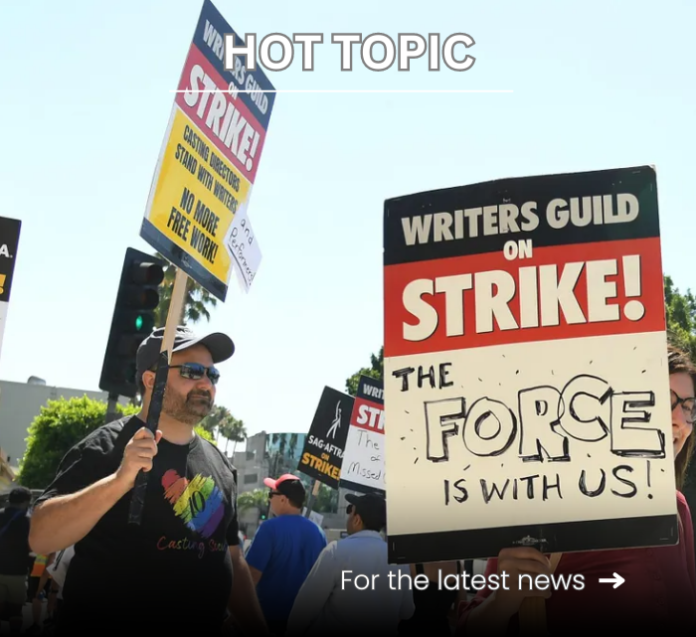As the 108-day writers strike persists, the Writers Guild of America (WGA) engaged in another round of discussions with representatives from major studios on Thursday, striving to find a pathway toward resolution. The ongoing negotiations have captured the attention of industry stakeholders, including prominent studio CEOs such as Ted Sarandos of Netflix, David Zaslav of Warner Bros. Discovery, Donna Langley of NBCUniversal, and Dana Walden and Alan Bergman of Disney. These top executives are slated to convene in a joint call on Friday to chart the course for the next phase of talks.
Despite earnest efforts, a comprehensive solution has proven elusive, with substantial disparities remaining between the WGA and the Alliance of Motion Picture and Television Producers. The most recent exchange of proposals indicated significant discord, particularly regarding issues such as minimum staffing requirements for television productions and residuals tied to streaming viewership. Some studio insiders expressed astonishment and frustration at the guild’s response, highlighting a reluctance to unilaterally reshape the deal’s terms.
In light of the impasse, negotiators are considering an incremental approach that seeks consensus on narrower points of agreement. The aim is to build momentum by resolving less contentious matters, with the hope that this progress could pave the way for more complex issues to be addressed.
The studio CEOs’ personal investment in achieving a resolution is palpable, intensified by concurrent business challenges in the entertainment landscape. This fall, these leaders confront multifaceted demands while also addressing concerns over executive compensation and public perceptions surrounding the strike.
The executives actively participated in crafting a comprehensive offer presented to the WGA last week, encompassing provisions related to staffing levels for TV productions and increased transparency in streaming show performance evaluation. Sources indicate that the offer was made with a spirit of generosity, serving as a potential catalyst for productive negotiations. However, while the WGA showed flexibility in certain numerical aspects, the foundational principles of their proposals remain steadfast.
Despite ongoing negotiations, formal updates from the WGA leadership have been limited since last week. The discussions have been steered by the Alliance of Motion Picture and Television Producers, a consortium representing major studios and numerous other industry entities. Yet, the ultimate decisions and directions rest with the chief executives.
In a parallel development, the WGA released a scathing report on Thursday, admonishing entertainment giants Netflix, Amazon, and Disney for allegedly exploiting their dominant positions to suppress writers’ compensation. The guild’s statement called on antitrust regulators to scrutinize further consolidation within the entertainment sector, a move aimed at preserving equitable industry practices.
Written by
Derek Chan – Editor







